- Home
- Conn Iggulden
Wars of the Roses 01 - Stormbird Page 8
Wars of the Roses 01 - Stormbird Read online
Page 8
He’d decided he’d use his razor on them if he was spotted. It was a finger-width line of the finest steel, with a tortoiseshell handle. If they found him, he’d vowed to make them kill him by the road rather than suffer the duke’s torturers or, worse, the man’s smug pleasure in landing such a fish. Yet the duke’s men hadn’t stopped at the sight of one more grubby peasant staring from the back of an ox-cart.
It could have been humiliating to be forced to go south in such a way, but in fact Derry enjoyed the game. He thought it was that part of him that had drawn old Bertle’s attention, when Derry was just another informer and ex-soldier, with his knees showing through torn trousers. Derry had been running a little fight ring in the London rookeries, with his hand in the pockets of all the men involved. It had earned him a fair bit, as he’d combined setting the odds with rigging the matches, giving strict orders to whichever fighter would win or lose.
He’d only met Bertle once before the night the old man had come to one of his fights. Dressed in his dusty blacks, Bertle had paid for a penny seat and watched it all: from the finger signals Derry gave the fighters, to the chalk board of odds and how they shifted. When the crowd went home, the old man remained, coming up to him with a gleam in his eye as Derry paid four or five bruised and battered men their share of the takings. Recognizing him, Derry had waved off the lads who might have shoved him out into the night and just let Bertle sit and observe. It had been after midnight when they’d cleared the warehouse of all sign that it had been used. Whoever the owner was, he didn’t know he’d hosted fights that night. He’d never know unless he found blood under the fresh sawdust, but either way, they never used the same place twice.
Even then, Derry had sensed Bertle’s amusement and delight at mixing with the rough fight crowd. He’d let all the others go until the old man was the only one remaining.
‘What is it then, you old sod?’ Derry had said to him at last. He remembered Bertle’s slow smile then, a hard little man who’d seen most kinds of evil and shrugged at them all.
‘Proper little king-thief, ain’t you, son?’ Bertle had said.
‘I do all right. I don’t cross the gangs, or not often. I make a living.’
‘You do it for coin then, do you? To make an honest crust?’
‘Man has to eat,’ Derry shot back.
Bertle had just waited, raising his eyebrows. Derry still remembered the way the old man’s face creased in delight when he’d given an honest answer. He still didn’t know why he had.
‘I do it because it’s fun, you old devil, all right? Because no matter who wins, I always do. Satisfied?’
‘Maybe. Come and see me tomorrow, Derry Brewer. I might have a job or two for you, something worth doing.’
The old man had shuffled off into the night, leaving Derry staring after him. He’d been certain he wouldn’t go, of course. Yet he had gone anyway, just to see.
Derry shook off the daze of memories, knowing he couldn’t just drift while the ox ambled along. He’d thought through a lot of lines to say when he strolled up to the Duke of York at the wedding. As long as he could find a place to wash and change first, of course. The grubby sack he rested on was filled with carefully folded garments, good enough to transform him if he could just get there with his throat uncut. He wondered what the farmer thought of the strange passenger who looked like he couldn’t afford a meal, but could still pay good silver to ride through the night. Derry grinned to himself at the thought, glancing up at the man’s wide back. The road had cleared as the sun set, but they’d rolled on, as Derry needed to be there. He’d even dozed, rocked to sleep by the cart and only waking once when the ox let out a tumultuous fart like the crack of doom. It had Derry chuckling into his sack at the sheer silliness of his position.
The eastern sky lightened in shades of grey long before he could see the burning line of the sun. Derry had been to Anjou a few times in his travels, placing and taking messages from men in his employ. He knew there had been a trial and execution of some Jewish moneylender a month or so before and he had a rough idea of the debts incurred by René of Anjou. The man had secured his position with a bit of ruthlessness Derry could appreciate, but he wondered idly if he should investigate the man’s holdings a little further. Before the rents from Anjou and Maine came in, he’d be vulnerable. A couple of burned shops, perhaps a crop sowed with salt so that it rotted in the fields – the possibilities were endless. With just a little push, René of Anjou might have to come begging to his daughter’s new husband for a loan – and then they’d have a lever into the French court. That was assuming Derry could survive the wedding day, of course. The lords Suffolk and Somerset had their instructions if Derry didn’t arrive, but knowing that was hardly a comfort.
As dawn came, the drover insisted he had to rest, feed and water the great black ox that had ambled its way south for two days. Derry could see the double tower of the cathedral of Tours standing above the fields in the distance. It could not be more than a few miles away. With a sigh, he jumped down from the cart and stretched his legs and back. The road was mercifully empty in both directions. He assumed those who had travelled to see the wedding were all there by then. He was the only one still on the road, with the possible exception of the duke’s riders still searching the countryside for him.
Even as he had the thought, he caught a glimpse of a dust cloud in the distance and ran for the verge, jumping into a bank of wild grasses almost as high as his head.
‘Three silver deniers if you say nothing,’ he called out in French, digging himself in as deep as he could. It would have surprised Lord Suffolk to hear Derry’s perfect fluency in that language.
‘Eleven,’ the drover replied as he attached a feed bag to the slobbering mouth of his ox.
Derry half-rose in indignation.
‘Eleven! You could buy another ox with eleven, you bastard!’
‘Eleven is the price,’ the man said, without looking round. ‘They’re getting closer, my fine English lord.’
‘I’m not a lord,’ Derry grated from the long grass. ‘Eleven, then. My word on it.’
The sun had risen and he chafed at every lost moment. He could not take another step towards the cathedral with riders in sight. He wondered if he could creep away on his hands and knees, but if they saw the grasses move from the height of a saddle, it would be all over and done for Derry Brewer. He remained where he was, trying to ignore the flies and bright green grasshoppers that crept and buzzed around him.
He dropped his head right down when he heard the jingle and clatter of horsemen approaching the cart. They were so close he felt he could have reached out and touched them. He heard a braying English voice speaking execrable French as it shot questions at the drover. Derry breathed out in relief as the man said he had seen no one. The riders didn’t waste much time on one more grubby peasant and his ox. They trotted on quickly, so that silence returned to the roadside and Derry could hear birdsong and bees once again. He stood up, looking after the troop as they disappeared in the direction he wanted to go.
‘Eleven deniers,’ the drover said, holding out a great spade of a hand.
Derry reached into his sack and counted out the coins. He handed them over.
‘Some would call this robbery,’ he said.
The man only shrugged, smiling slightly at the wage he had earned for himself. As he turned back to the cart, he didn’t see Derry draw a billy club from his sack. One blow to the base of the man’s neck sent the drover staggering. Derry rapped him again on the dome of his skull, watching him fold with satisfaction.
‘They would be wrong,’ Derry told the unconscious figure. ‘That was just force majeure negotiation. This is robbery.’
He took his coins back and eyed the road to Tours and the risen sun. The ox chewed contentedly, looking at him through long lashes that would have suited a beautiful woman. The cart was too slow, Derry decided. He’d just have to run the last few miles.
Leaving the drover to wake
in his own time, Derry set off, pounding down the road to Tours. After only a short way, he cursed aloud and came back. The drover was groaning, already beginning to wake.
‘You must have a lot of bone in that big head,’ Derry told him. He counted out three silver coins and placed them in the man’s hand, folding the fingers over.
‘This is just because you remind me of my old dad, not because I’m going soft,’ he muttered. ‘All right?’
The drover opened one eye and looked blearily at him.
‘All right then,’ Derry said. He took a deep breath and began to run.
Margaret hardly dared move in the dress. The new cloth itched and felt strange on her, as stiff as if she were dressed in boards. Yet she could not deny it looked magnificent in the long glass. Seed pearls were sewn on to every exposed part, so that they rattled whenever she moved. The veil was as thin as spiderweb and she marvelled at being able to see through it. She could no longer bend to look at the perfect satin slippers she wore underneath. Her feet seemed far away, as if they belonged to someone else, while she had been reduced to a head, perched on acres of white cloth. Only the servant fanning at her kept sweat from breaking out as the heat of the day rose.
Margaret was flushed by the time she was finally allowed to come out into the sunshine. Saumur Castle was the best part of forty miles from the cathedral at Tours and a grand carriage waited for her in the courtyard. It gleamed with polish and new black paint, drawn by two matched geldings in glossy brown. A canopy had been erected over the open seats, to protect her from dust as they rode.
Her mother came out of the main house, approaching with both pride and strain written clearly in her expression. Margaret stood awkwardly as her dress was tweaked and tugged into the perfect position to take her seat.
‘Keep your head high and don’t slouch,’ her mother said. ‘The dignity of the family rides with you today, Margaret. Do not shame us. Yolande! Help your sister.’
Yolande scurried forward, lifting armfuls of cloth to prevent them dragging on the stones as Margaret took careful steps. A footman she did not know helped her up the step and, with a gasp, she ducked through the gap and almost fell on to the bench inside. She was in, with Yolande fussing around to arrange the train in such a way that it would not wrinkle too badly. Another carriage was already waiting to enter the courtyard and it felt as if the entire staff were coming out to wave her off. Margaret concentrated on breathing shallowly, feeling dizzy from the constriction. She could not have slouched if she’d wanted to: the panels of the dress held her upright. She raised a hand to the lines of maids and footmen and they cheered her dutifully. Her gaze fell on one she did know, from running into her during the king’s visit. That young woman was smiling and waving a handkerchief with tears in her eyes. Margaret felt like a painted doll compared to the little girl she had been then.
Bright-eyed and panting, Yolande clambered in to sit at her side.
‘This is incredible,’ she said, looking all around. ‘It’s all for you! Are you excited?’
Margaret searched inside herself and found only nervousness. She made a rueful face in reply. Perhaps she would be excited on the road, but she was about to marry a young man she had never seen. Would this English Henry be as nervous? She doubted it. Her future husband was a king and used to grand occasions.
Two more footmen in black, polished boots and spotless livery took their positions on either side of the carriage. In theory they would repel any thieves or bandits on the road, but there was no real danger. The carriage driver was a large florid man who bowed elaborately to the two girls before taking his seat and arranging a long whip with a dangling cord at the tip.
Somehow the carriages began moving before Margaret was ready. She saw the walls of Saumur passing and leaned as far over as she could to wave goodbye to her mother. Her father and brothers had gone ahead the previous day. This morning was for the women of the household, but it had come and gone so quickly she could not comprehend it. All the hours since waking seemed to have been compressed into moments and she wanted to call out for the driver to stop, her mind flitting through a thousand things she was meant to remember.
She saw her mother signalling to the next carriage, her mind already on the gaggle of cousins and the vast labour going on to prepare Saumur for a wedding feast that evening. Margaret sat back, seeing two more of the carriages waiting patiently to take guests to Tours. As she and her sister trundled out on to the road, Margaret listened to the driver clicking his tongue and making the whip snap, so that the horses lurched into a trot in perfect unison. She gasped with pleasure at the breath of wind on her face. It would be hours yet till she saw the cathedral. For the first time, she felt a pleasurable tingle of anticipation.
As the carriage left Saumur land through the northern gate, the road widened. Both girls were awed at the crowd lining the verges. No one had bothered to tell Margaret of the numbers who had travelled just to see her. English and French alike stood waving their caps and cheering, calling her name. Margaret blushed prettily and they craned their necks and laughed in the sunshine.
‘Bloody hell,’ Yolande muttered in delight. ‘This is wonderful.’
Suffolk did his best to hide his worry as he stood in front of the cathedral. He stared up at the double tower as if he found it interesting, doing anything he could to seem relaxed and untroubled. His new trousers and tunic itched, though he fancied he looked slimmer than usual in the cut. He was forced to mop his face as the weight of his cloak seemed to grow heavier with every passing hour, the fur trim tickling his throat. The English style of layered cloth was out of place in a French summer, but he noticed the French were dressed just as warmly, so that they were almost as red-faced as the English nobles already drunk on fortified wine.
Suffolk envied York his trim frame as he caught sight of the man striding through the crowd and stopping to give orders to one of his men-at-arms. The duke had brought a huge personal guard with him, more than all the other English lords put together. Even so, it was dwarfed by the number of French soldiers camped around the town.
Suffolk watched as York’s man saluted and rushed off on some errand. Suffolk clasped his hands behind his back and tried to look fascinated by the gothic towers and ornate stonework. He wished his wife had come, but Alice had been scandalized at the very thought. It had been hard enough explaining that he would marry a fourteen-year-old French princess that day, if it all came off. Having his own wife there as well would be a mockery of the church, or so she’d said, at some length.
A greater mockery would be the slaughter that could very well erupt at the slightest provocation, Suffolk thought. For the moment, York’s men were studiously ignoring the French soldiers around Tours, while their noble masters strolled and talked. Suffolk knew the French were there to take command of Anjou and Maine the moment the service was over. He would have loved to tell York, especially after suffering the man’s meaningful glances to the distant soldiers. York felt his caution was utterly vindicated by the presence of such a French force. As they’d passed briefly in the churchyard, he’d hissed a question, demanding to know how Suffolk thought just a few guards could have protected King Henry. Suffolk had only been able to mumble helplessly that there would surely be no danger on a wedding day. York had glared at him, visibly suspicious as he bustled away.
It was a fraught situation and Suffolk’s nerves wound tighter and tighter with every passing hour. York didn’t know the king would not be coming and now there were two armies facing each other in the fields. All it would take was for some idiot to call the wrong insult or play some vicious prank and no force on earth or in heaven would prevent a battle. Suffolk used a soft cloth to wipe his face once more.
As he murmured something inane to another guest, Suffolk saw York change direction to approach him across the churchyard.
‘Come on, Derry,’ Suffolk said softly in English, making the closest French noble squint at him in confusion. ‘I need you here. Come on.’
He beamed at the duke as he halted.
‘Richard! What a wonderful day we have for it. Have you news of the king?’
York looked sourly at the older man.
‘I was coming to ask just that, William. I have no word from the ports that he is even on his way. Have you seen Derry Brewer?’
‘Not yet. Perhaps he is with the king. I think they were coming over together.’
York scowled to himself, staring over the crowd of French and English noble families, all enjoying the sunshine.
‘I can’t understand it. Unless he’s grown wings, he should be well on the road by now. My men would hardly have missed a royal party passing through Calais, but I’ve heard nothing.’
‘They could be outrunning the messengers, Richard. Have you thought of that? I’m sure they’ll be here in time.’
‘This has Brewer’s hands all over it,’ York said angrily. ‘Secret routes and subterfuge, as if even the king’s own lords cannot be trusted. Your friend Brewer will look a fool if the king’s party is ambushed and taken while we stand here in our finery.’
‘I’m sure that won’t happen. Derry merely seeks to keep the king from harm, as do we all.’
‘I won’t be happy until he’s safely married and on the road home. You’ve seen the soldiers they have camped all around us? Thank God I brought so many with me! This is a dangerous situation, William. I have too few men to hold them if they make a surprise attack.’
‘I’m sure they are only here to protect King Charles and his lords,’ Suffolk lied nervously. He dreaded the moment when the full details of the marriage agreement would be revealed. He had to hope the French king would not make too much of a show as he took command of his new territories. Knowing the French as he did, William de la Pole suspected that was a very vain hope indeed.
‘The town is like an armed camp and the French king isn’t even here yet,’ York said. ‘I’m missing something, William. On your honour, will you tell me I’m worrying over nothing?’

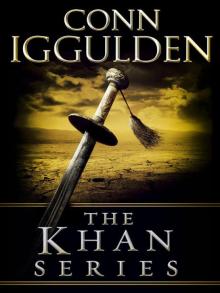 The Khan Series 5-Book Bundle
The Khan Series 5-Book Bundle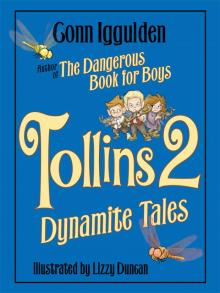 Tollins 2: Dynamite Tales
Tollins 2: Dynamite Tales Tollins: Explosive Tales for Children
Tollins: Explosive Tales for Children The Field of Swords
The Field of Swords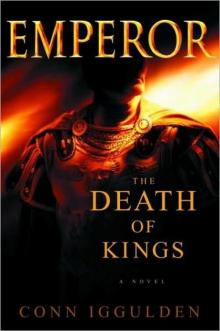 The Death of Kings
The Death of Kings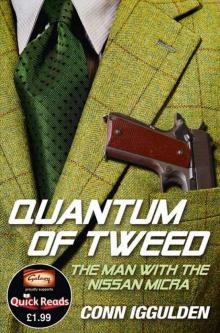 Quantum of Tweed: The Man With the Nissan Micra
Quantum of Tweed: The Man With the Nissan Micra Bones of the Hills
Bones of the Hills Genghis: Birth of an Empire
Genghis: Birth of an Empire The Gates of Rome
The Gates of Rome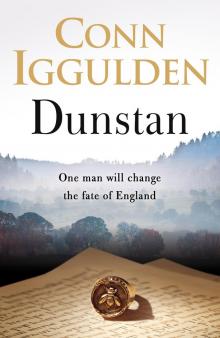 Dunstan
Dunstan Fig Tree
Fig Tree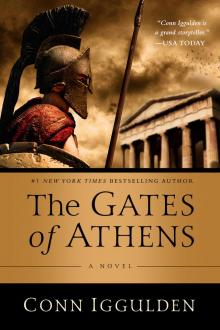 The Gates of Athens
The Gates of Athens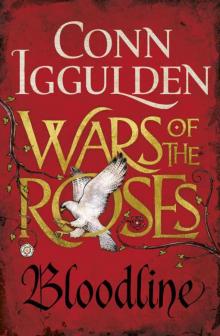 Stormbird
Stormbird Khan: Empire of Silver
Khan: Empire of Silver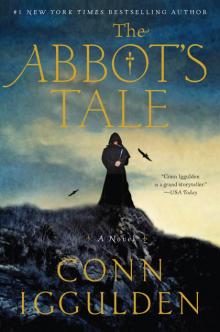 The Abbot's Tale
The Abbot's Tale Gengis: Lords of the Bow
Gengis: Lords of the Bow The Gods of War
The Gods of War Blackwater
Blackwater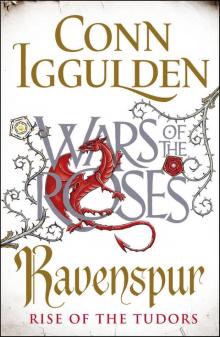 Ravenspur: Rise of the Tudors
Ravenspur: Rise of the Tudors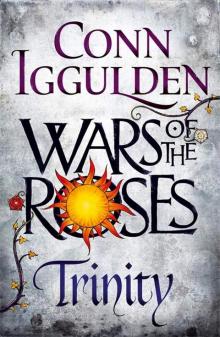 Wars of the Roses: Trinity (War of the Roses Book 2)
Wars of the Roses: Trinity (War of the Roses Book 2) The Gods of war e-4
The Gods of war e-4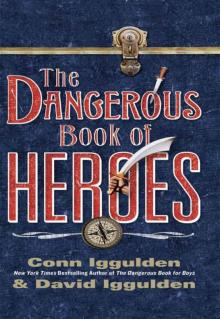 The Dangerous Book of Heroes
The Dangerous Book of Heroes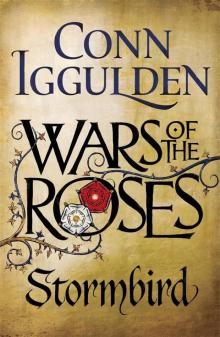 Stormbird wotr-1
Stormbird wotr-1 Emperor: The Death of Kings
Emperor: The Death of Kings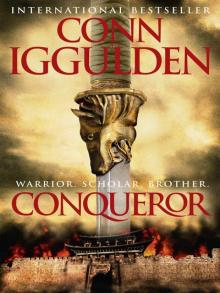 Conqueror (2011) c-5
Conqueror (2011) c-5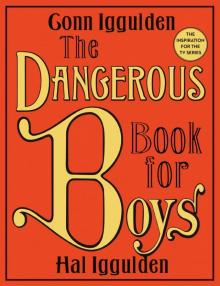 The Dangerous Book for Boys
The Dangerous Book for Boys Genghis Lords of the Bow
Genghis Lords of the Bow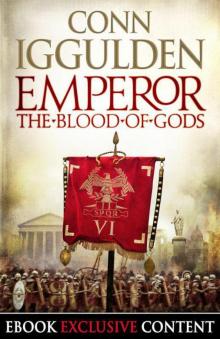 Emperor: The Blood of Gods (Special Edition) (Emperor Series, Book 5)
Emperor: The Blood of Gods (Special Edition) (Emperor Series, Book 5) The Emperor Series: Books 1-5
The Emperor Series: Books 1-5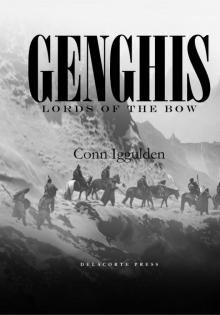 Lords of the Bow c-2
Lords of the Bow c-2 Lords of the Bow
Lords of the Bow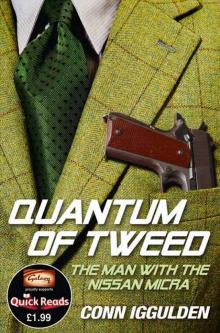 Quantum of Tweed
Quantum of Tweed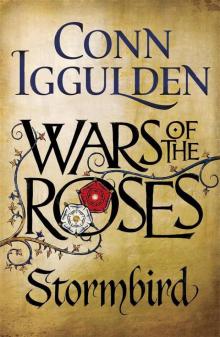 Wars of the Roses 01 - Stormbird
Wars of the Roses 01 - Stormbird Empire of Silver c-4
Empire of Silver c-4 Birth of an Empire
Birth of an Empire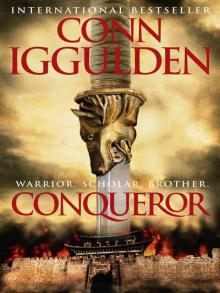 Conqueror (2011)
Conqueror (2011)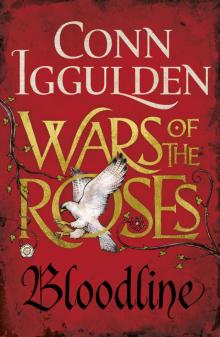 Wars of the Roses: Bloodline: Book 3 (The Wars of the Roses)
Wars of the Roses: Bloodline: Book 3 (The Wars of the Roses) Bones Of the Hills c-3
Bones Of the Hills c-3 Empire of Silver
Empire of Silver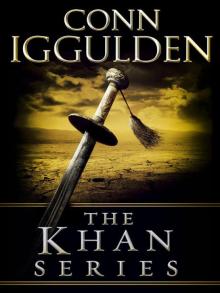 The Khan Series 5-Book Bundle: Genghis: Birth of an Empire, Genghis: Bones of the Hills, Genghis: Lords of the Bow, Khan: Empire of Silver, Conqueror
The Khan Series 5-Book Bundle: Genghis: Birth of an Empire, Genghis: Bones of the Hills, Genghis: Lords of the Bow, Khan: Empire of Silver, Conqueror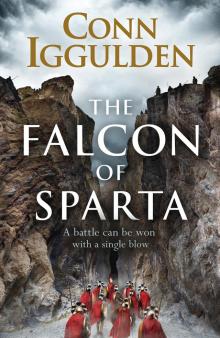 The Falcon of Sparta
The Falcon of Sparta Explosive Tales for Children
Explosive Tales for Children